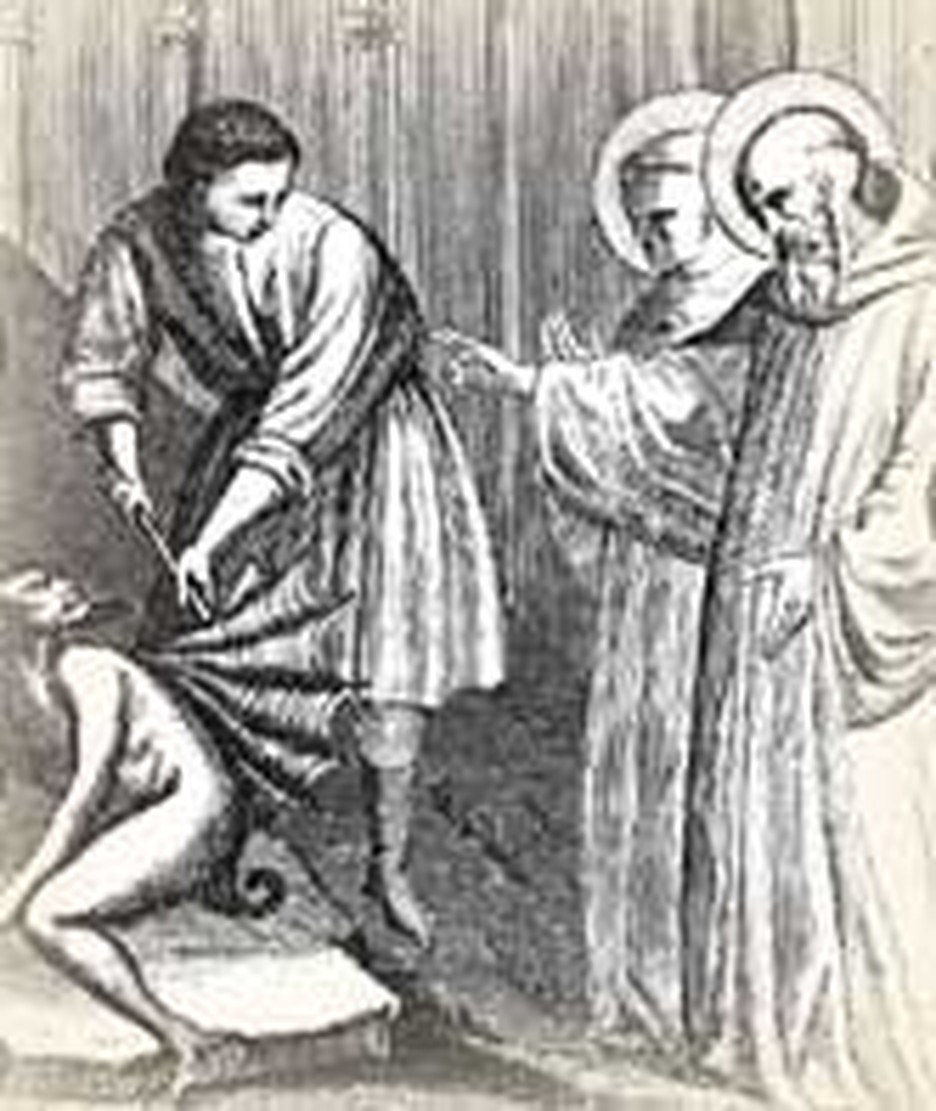
The evil spirits which haunted Ikanhoe (Ox-Island) uttered terrible groans. They sent up a noxious vapor from the ground. A monk named Botolph or Botulph had fixed on this unlikely spot to settle, disturbing them.
According to popular legend, the evil spirits pleaded with Botulph, telling him they had no other place to go. Why couldn't he find some other spot; it wouldn't be hard for him because the whole world sang his praises.
Botulph ignored their pleas and founded a Benedictine monastery named Ikanhoe. His monks drained swamps and turned the demon lands into prosperous fields. Although many early documents and churches testify to the existence of St. Botulph, no one is quite sure where his monastery was built. Some think it was at Boston, England. They believe "Boston" is a shortened form of "Botulph's Stone" (which is why Botulph is the patron saint of another Boston--in Massachusetts). However, there is a town in Suffolk, England called Iken with a church dedicated to St. Botulph which may actually be the location of his monastery.
At any rate, Botulph became famous. The son of noble Saxon parents, he had been educated in France. When he returned to England, People soon recognized that he was full of the Holy Spirit. While on the European continent, he had met the sisters of Sussex's King Ethelmund. He asked for a grant of "worthless" land. The king allowed him to take Ikanhoe.
As with many other monks, Botulph set to work to cultivate the wilderness. In 654 the Anglo-Saxon Chronicle noted that he had begun building a church. His reputation drew disciples. Bede, a seventh-century historian of the English church, wrote that his own abbot traveled to East Anglia to learn what he could from Botulph and returned with a rich store of knowledge.
Botulph traveled as a missionary throughout Anglia, Kent, and Sussex, braving bandits and rough roads. He died around the year 680 after a lengthy illness, and was buried at Ikanhoe. When the Danes invaded England, Saxon monks took Botulph's bones out of his tomb and sent them away for safe-keeping. Eventually Botulph's relics were divided between three churches.
Thanks to Botulph, Benedictines monasteries spread across England. At least seventy English churches bear his name, as well as English places. For example, there are towns in Suffolk named Botesdale and Botolph and another in Yorkshire named Bossal. There is a Botolph's Bridge in Huntingdon Shire and another in Kent.
St. Botulph is honored by the English church on this day, June 17.
Bibliography:
- "Botulph." http://www.catholic-forum.com/saints/saintb1h.htm
- "Botulph, St." The Oxford Dictionary of the Christian Church, edited by F. L. Cross and E. A. Livingstone. Oxford, 1997.
- "St. Botolph; Boston's Patron Saint." http://www.roca.org/OA/115-116/115aa.htm
- Thurston, Herbert. "St. Botulph." The Catholic Encyclopedia. New York: Robert Appleton, 1914.
Last updated July, 2007


